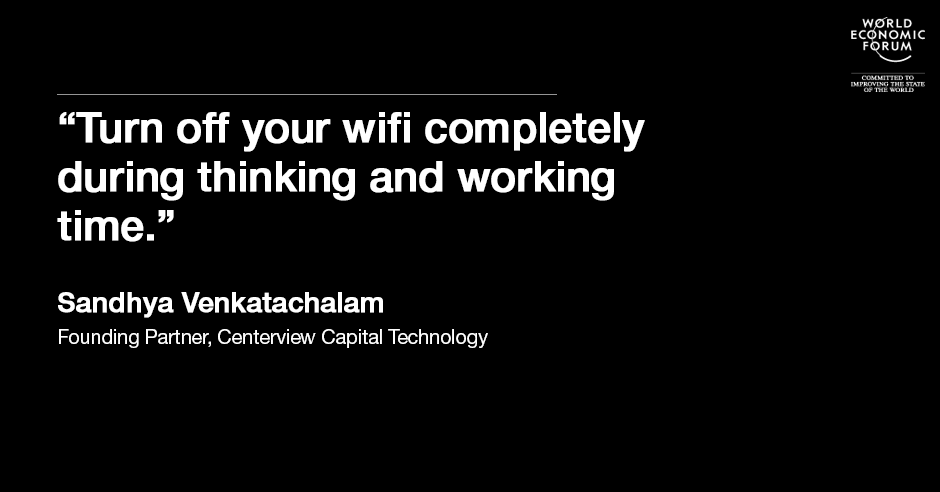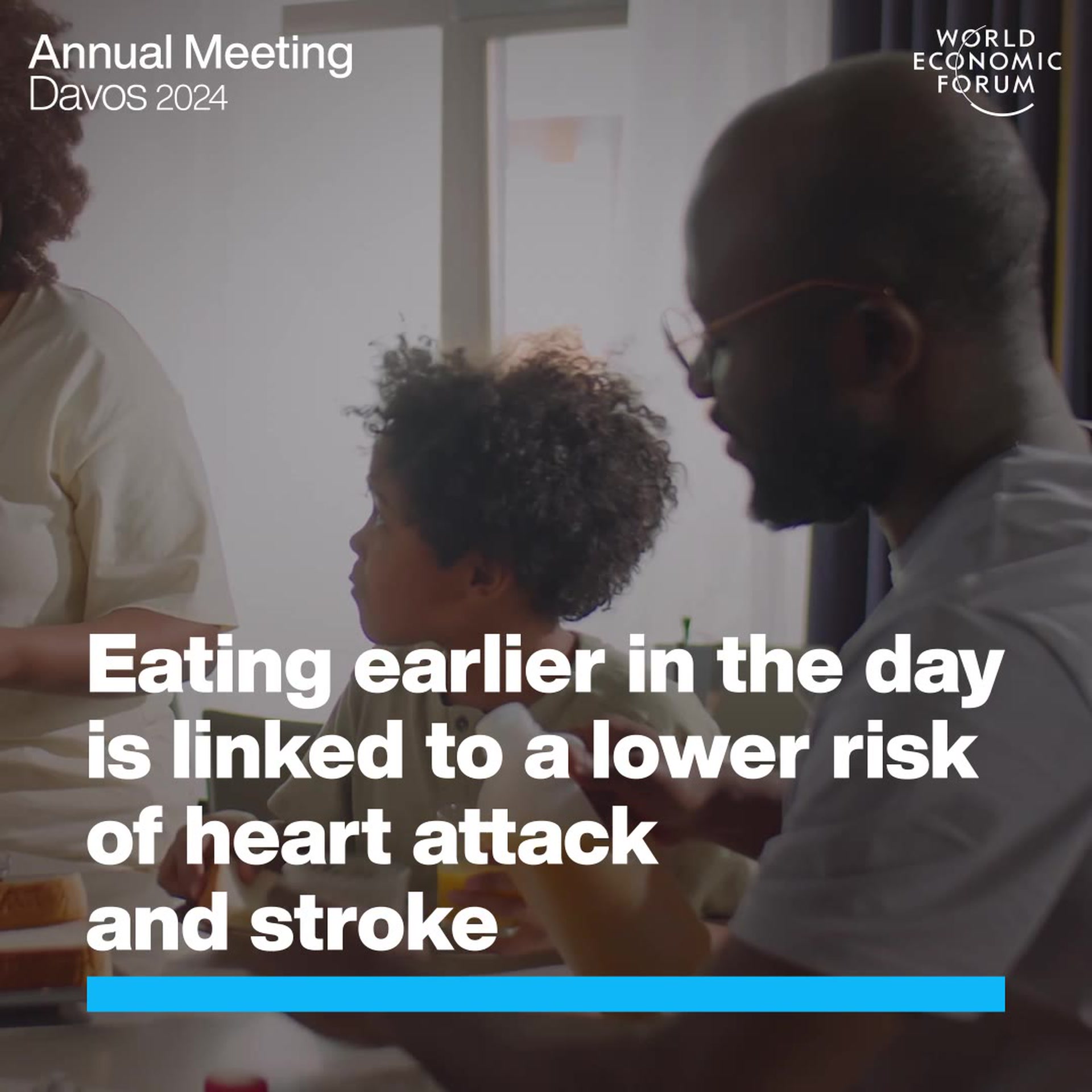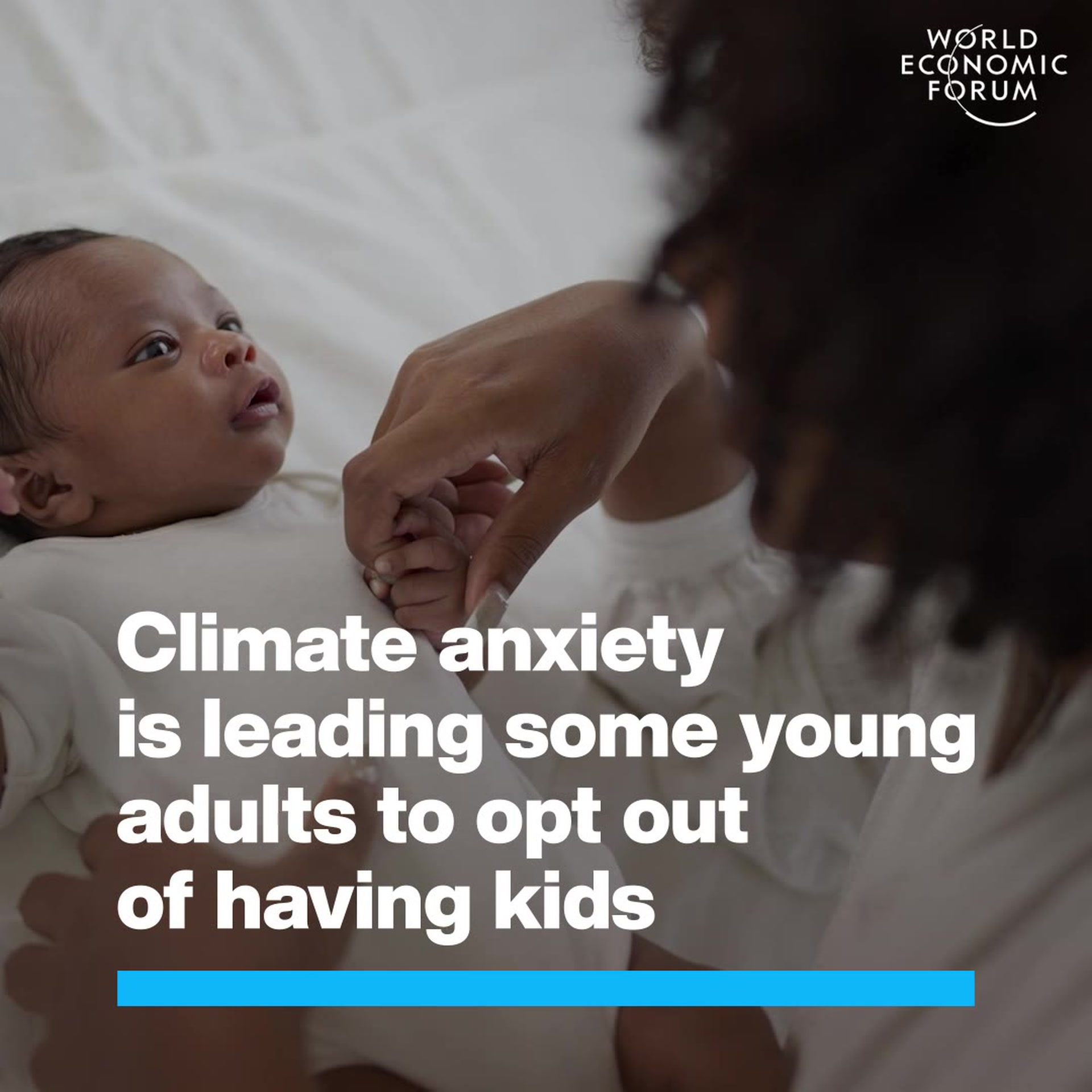4 ways to be more productive at work and life


Get involved with our crowdsourced digital platform to deliver impact at scale
Stay up to date:
Behavioural Sciences
Being productive at work for me means being productive at life.
As the co-founder of Centerview Capital, a new growth capital firm, my personal and professional activities feed off of each other. Following these four principles will help you optimize your productivity in life and maximize your creative output.
1) Prepare mind and body. Managing your energy and health is just as important as managing your time.
- Sleep more: Harvard studies show that lack of sleep results in reduced efficiency and productivity, errors, and accidents, and is linked to certain diseases.
- Exercise: Research continues to show the positive cognitive benefits of working out
- Think differently: Embark on intellectual or creative exploration in an area completely unrelated to your work to boost new ideas.
- Take breaks: research shows that 15min every 90min is effective, with several longer breaks for intermittent renewal.
- Eat well: Don’t just avoid the heavy lunch; the World Health Organization shows that the right nutrition can increase productivity levels by 20%.
- Meditate: scientific research continues to show the positive effects of meditation on brain form, function and longevity.
2) Create the right environment. Minimize distractions: While “multitasking” makes people feel more productive, it actually makes them less productive, can lead to stress and prevents the deeper cognitive state that often leads to innovation:
- Turn off your wifi completely during thinking and working time.
- Schedule working on email two or three times a day vs as emails come in.
- Plan meetings for the right estimated amount of time, not the default one hour.
- Signal to others when you are available (e.g. door open) and when you aren’t (e.g. shutting door).
- Optimize your workspace: Temperature, lighting, clutter, décor, and noise have all shown to have an effect on mood and productivity. Set the right balance for you or modify – bring in a natural light desk lamp or a fan, air purifier or plants.
- Listing out everything you have to do, large or small, not only allows you to plan better, but relieves the stress of forgetting. Break large projects (like “customer presentation”) into smaller, actionable tasks (e.g. “create outline”, 30 minutes; “Read relevant research reports”, one hour, etc.
- Plan out when to get things done by picking the most important tasks and mapping them to your calendar. If you don’t have time for something high priority, move something else off your schedule to accommodate.
- Minding your time and planning your hours actually helps you do more. Get big or worrisome tasks done early rather than relegating to the end of the day.
4) Leverage others’ productivity
People often worry about individual productivity only, but other people definitely affect your efficiency. Find ways to help others and ask for help from those who have optimized. Use new technology – below are just the mobile apps I use daily:
- Kyber: Great mobile app that helps me with “List, Plan, Do” above and extends to making communications with others more efficient, including delegation and scheduling.
- Evernote: I never take notes on paper anymore. I write once using this app and my notes are always with me on any device
- Instacart: In order to eat well, you need to have good food around you all the time. This mobile app gets me unlimited grocery delivery for $90 a year.
- Google Shopping: Same type of app as Instacart but for all nonperishables. Same or next day delivery.
- MyFitnessPal: Mobile app that tracks all my eating and exercise.
Almost every habit is the result of small decisions over time and very small improvements can lead to big success. Being more productive doesn’t have to be a involve a hige overhaul of your habits. Try to be just 1% more efficient in each of the areas above and you will soon see a huge difference in your life’s productivity.
Author: Sandhya Venkatachalam, Founding Partner, Centerview Capital Technology
Image: Journalists work in the editorial office of the new Russian language TV channel ETV+ in Tallinn, Estonia, September 24, 2015. REUTERS/Ints Kalnins
Don't miss any update on this topic
Create a free account and access your personalized content collection with our latest publications and analyses.
License and Republishing
World Economic Forum articles may be republished in accordance with the Creative Commons Attribution-NonCommercial-NoDerivatives 4.0 International Public License, and in accordance with our Terms of Use.
The views expressed in this article are those of the author alone and not the World Economic Forum.
The Agenda Weekly
A weekly update of the most important issues driving the global agenda
You can unsubscribe at any time using the link in our emails. For more details, review our privacy policy.
More on Behavioural SciencesSee all
Peter Dizikes
November 27, 2023
Aaron De Smet and Patrick Simon
September 25, 2023
Kate Whiting and Kateryna Gordiychuk
September 6, 2023







